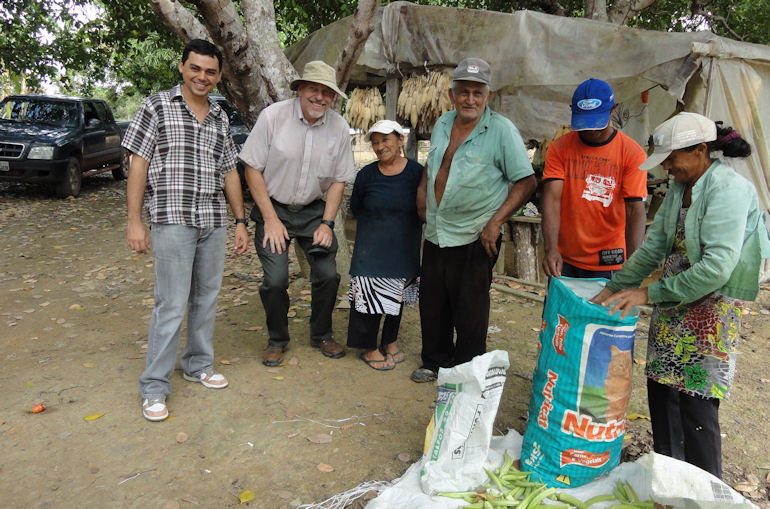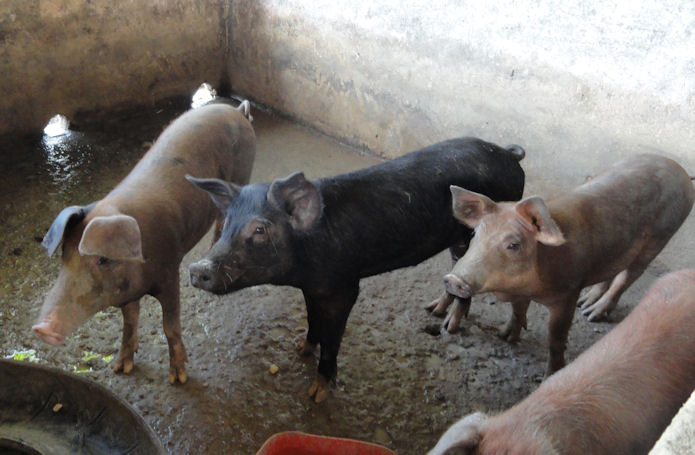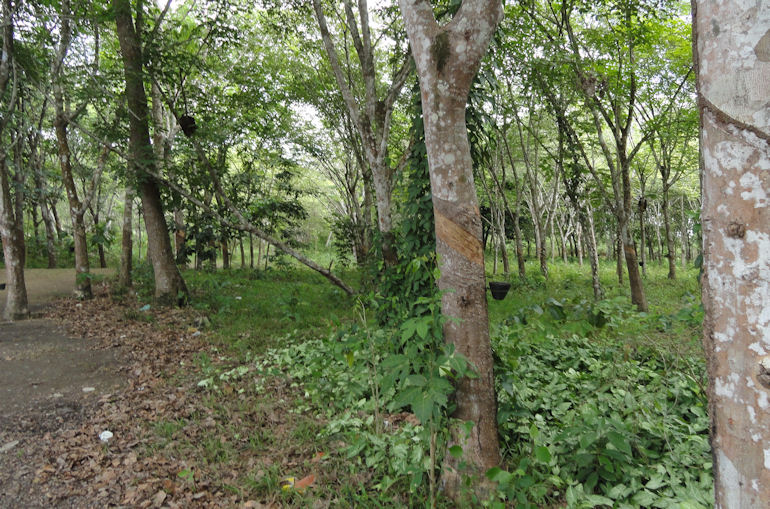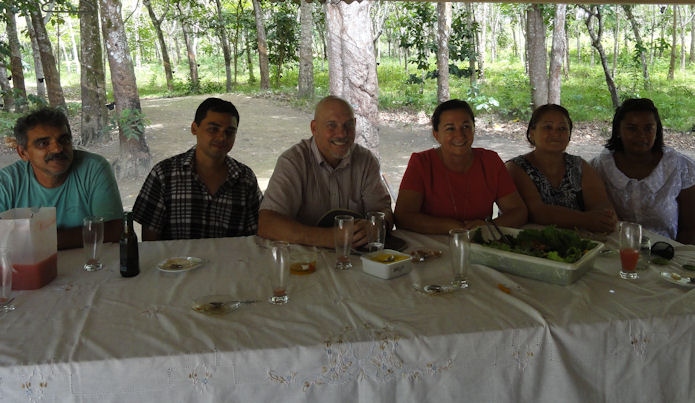
Many people would like to be farmers at five in the afternoon, but few want to be farmers at five in the morning. Farming is hard work and it was even harder work years ago. It is still hard work for many of the small farmers in the Amazon.
These guys, or their parents, came up the new Brasília to Belém highway thirty of forty years ago. They sometimes walked from places like Goiás of the Northeast looking for a new life in the new lands. Some made it big and there are a lot of productive large and modern farms on this Brazilian agricultural frontier. I talked to some of the smaller farmers.

Paragominas has a program that tries to help small farmers. The municipality guarantees that they will buy their produce for use in the schools, i.e. provides a certain market. But it is hard to keep them down on the farm and easy to understand why. It is hard work. The couple I talked to, the one you see in the picture above, were originally from the NE, I think they said from Ceará. They worked their whole lives on the farm, but their kids were college educated and unenthusiastic about keeping up the tradition of farming. Birth rates in Brazil are dropping and it seems likely that fewer and fewer farmers will be on the land as time goes on. This is probably good. More will be produced on fewer hectares.

I keep seeing parallels between American environmental history and what is happening today in Brazil. We are pioneer nations, taming the wilderness. It is out of style these days to tame the wilderness, but we have the luxury of it being out of style because we have tamed the wilderness. We cannot go back. Our challenge now is to adapt what we did to make it sustainable. Forests are growing back in the U.S. There are now more trees growing in Eastern North America than there were in 1776. Marginal lands have returned to forests and our agriculture is becoming sustainable. Brazil is on this path. We passed through the time of maximum destruction and we now it will begin to reverse. In the U.S., the nadir of forests was around 1920. Then things got better. I don’t know if Brazil has turned the corner yet, but it will soon.

Sustainability sits on three pillars: environment, social and economic development. We often forget the last two when talking about sustainably, but in the long and medium run, w/o development in the social and economic spheres, the environment cannot be sustained. We humans do not properly understand the complexity of the environment and we never will. But sometimes we come close enough to truth to know some of the things we should do. We come around in circles. I recall the lines from TS Eliot, “We never stop exploring, and at the end of all our explorations we come back to where we started, and we will know that place for the first time”.
My pictures show some of the farmers. The pigs are an Amazon variety. You can see rubber trees tapped int he picture below and the supper picture is a great meal I had at one of the family farms, all with products growing locally and organically.
